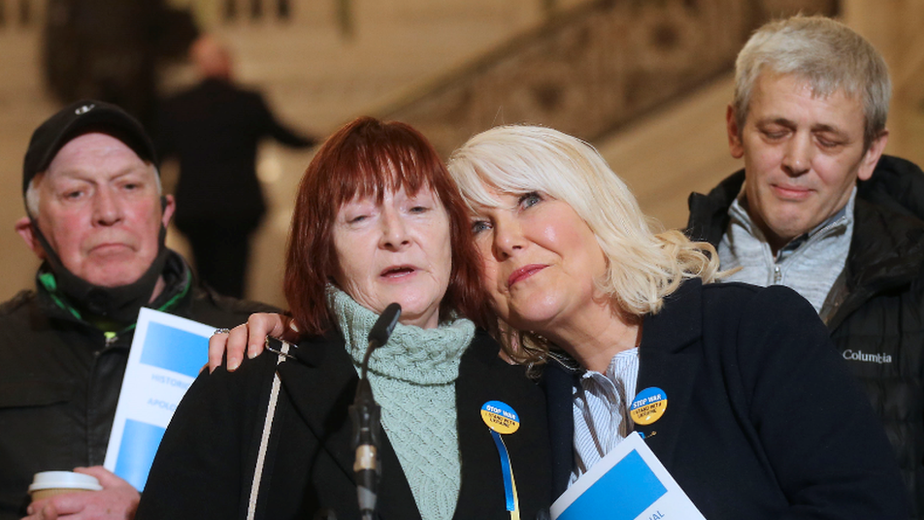'Time is running out' for historical abuse victims
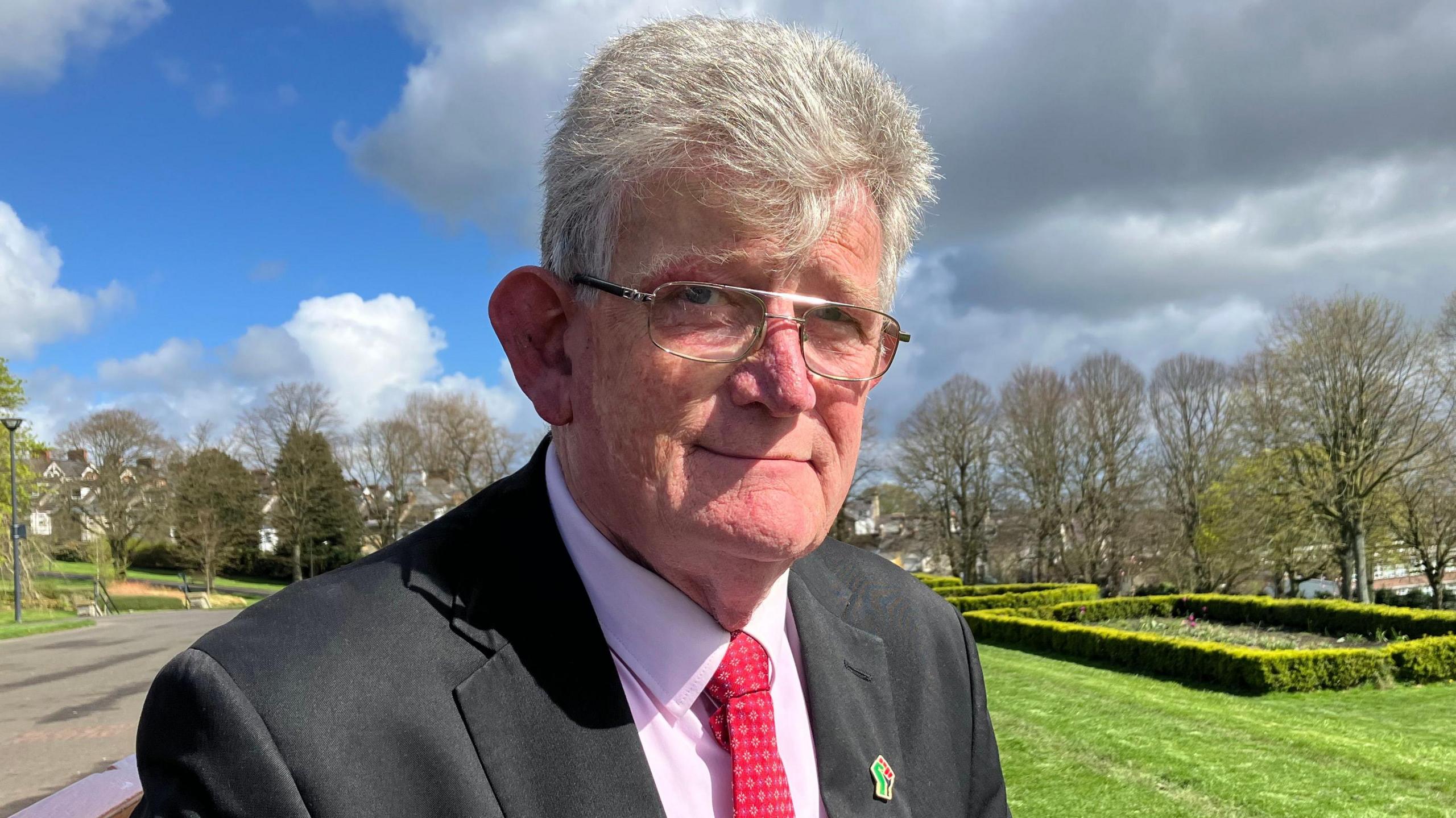
Jon McCourt from Survivors North West was among campaigners who met Michelle O'Neill and Emma Little-Pengelly this week
- Published
Survivors of Historical Institutional Abuse (HIA) in Northern Ireland have appealed to the first and deputy first ministers to extend a compensation scheme that is set to close within months.
The Historical Institutional Abuse Redress Board, set up to process applications, began payments in 2020 but applications are due to close on 2 April.
HIA campaigners argue that some victims have yet to come forward and that greater public awareness about the scheme is needed.
Jon McCourt from Survivors North West said "Time's not running out on paper, time's running out for people and on what we can get for people."
Campaigners have also asked the first and deputy first ministers to ensure a victims' support service that provides survivors with additional financial help remains in place beyond an initial 10-year timescale.
This week marks eight years since an inquiry recommended compensation, a memorial and an apology to survivors.
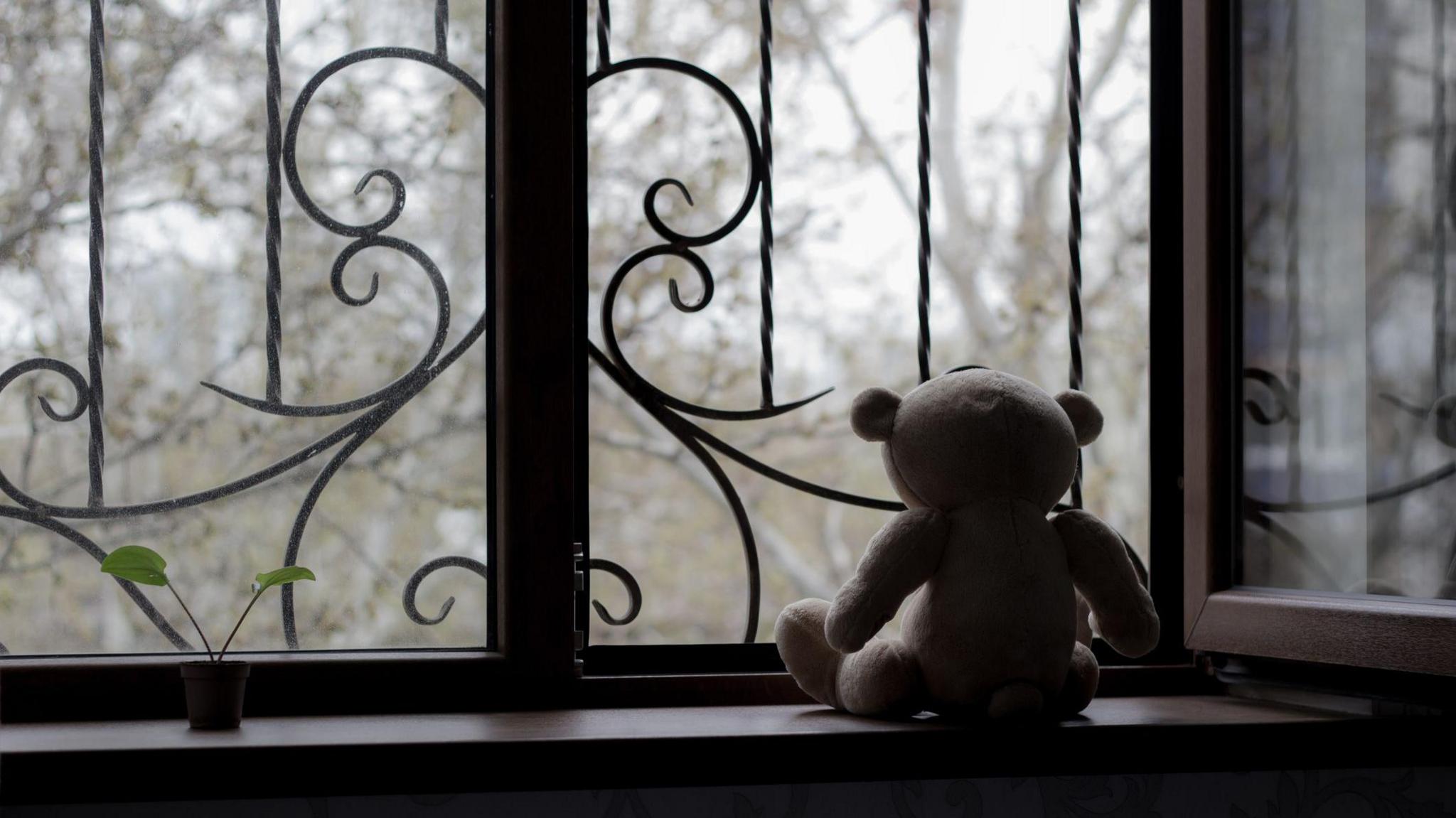
HIA campaigners argue that greater public awareness about the scheme is needed
Mr McCourt from Survivors North West was among a group of campaigners who met Michelle O'Neill and Emma Little-Pengelly earlier this week.
He told Stormont's Executive Office committee that the deadline appeared "set in stone".
"I spoke with someone who had met a man from Derry in a pub in Bradford, who had lived in a home in Northern Ireland, left at 16 years of age and said he was brought up in Termonbacca children's home and he had never heard of the scheme," said Mr McCourt.
'Severe toll on survivors'
Visibly emotional at times, he told MLAs that dealing with this issue had taken a severe toll on survivors and their families, appealing for a final push from politicians to do more, including compelling all religious and state-run organisations where abuse took place to make financial contributions.
Cyril Glass from Survivors Together said some solicitors had already stopped taking on cases for survivors due to the impending deadline for applications to the redress scheme.
Chair of The Executive Office committee Paula Bradshaw said there was "widespread support" from the committee to push for an extension of the deadline for applications to the Redress Board.
"The committee is following this up with the Law Society, however, there is an easy solution to this: The Executive Office could extend the scheme for six, 12 months or even longer," she said.
"None of us want to see the victims of historical abuse not receive justice through the form of redress."
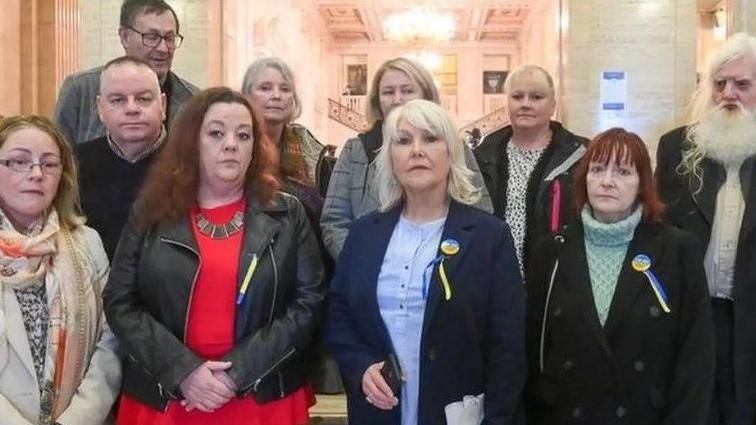
Victims and survivors gathered at Stormont in 2022 to receive a public apology from politicians
The Executive Office has been contacted for a response.
It previously estimated that £77m had been paid out to survivors, with more than 4,000 applications received.
Meanwhile, it has also emerged that plans for a memorial bench in the Northern Ireland Assembly for HIA survivors has been "set aside".
Last year, The Executive Office was preparing to install a permanent memorial, but it received little support from victims and survivors.
Gerry McCann from the Rosetta Trust told the committee that any memorial needed full participation from victims, with some suggesting ideas including a history programme or "living memorial" such as a bursary.
He said that following their meeting with the first and deputy first ministers, there was an acknowledgement of the need for a wider memorial programme.
A working group is to be set up within The Executive Office, including victims and survivors, to drive forward this process.
But Bradshaw said it was "shameful" that survivors were still having to push for progress on the memorial.
What did the HIA inquiry recommend?
Compensation to survivors of abuse, including in homes/institutions not covered by the HIA Inquiry, and relatives of deceased.
Permanent memorial erected at Stormont.
Public apology to survivors.
Establishment of a commissioner for survivors of institutional abuse.
Specialist care and assistance tailored to needs of victims.
Anyone who resided in an institution or home between 1922 and 1995 and suffered or witnessed abuse is eligible to apply.
Applications can also be made on behalf of someone who has died if the relative is a spouse, civil or cohabitating partner or child.
Related topics
- Published16 October 2023

- Published25 February 2014
- Published16 January 2024
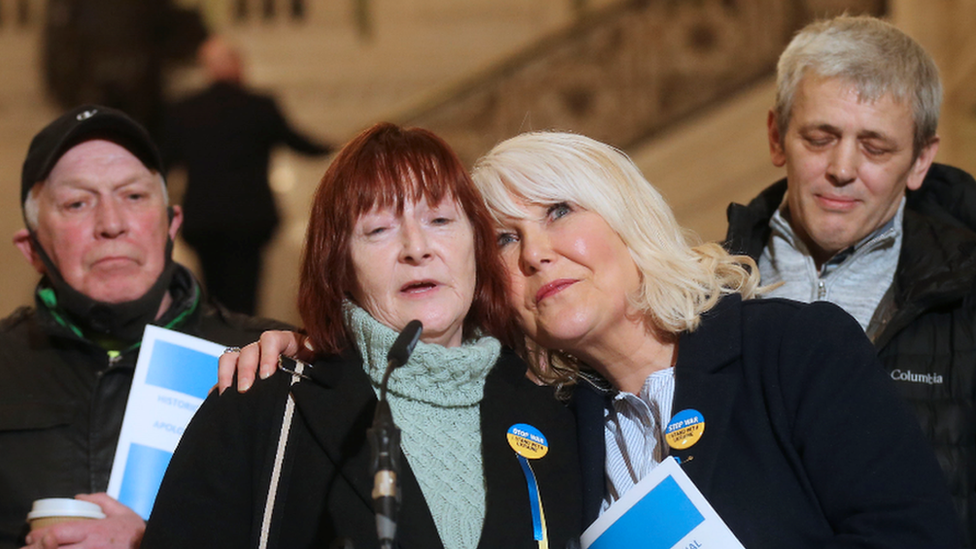
- Published11 March 2022
